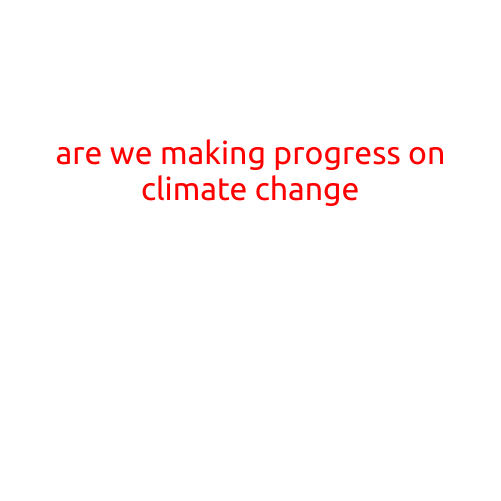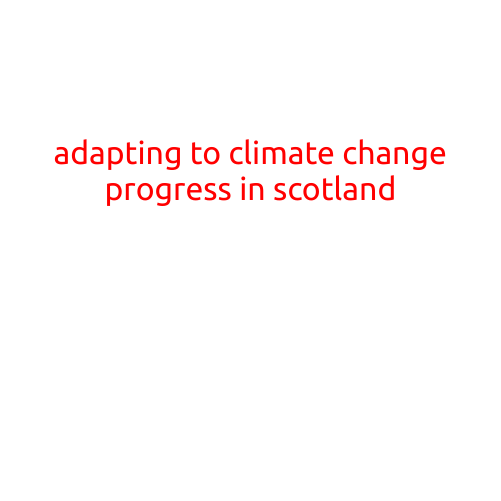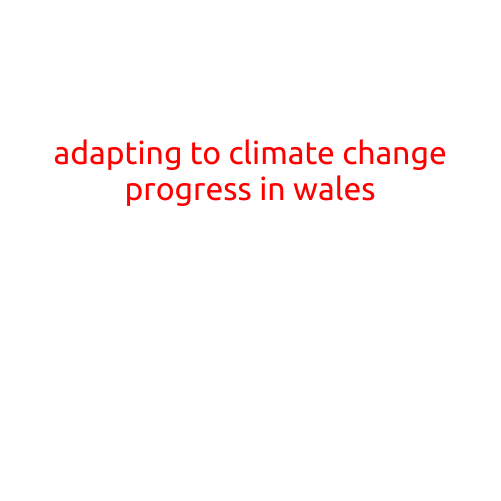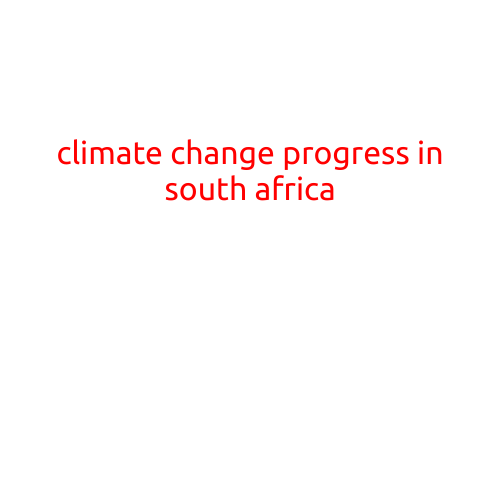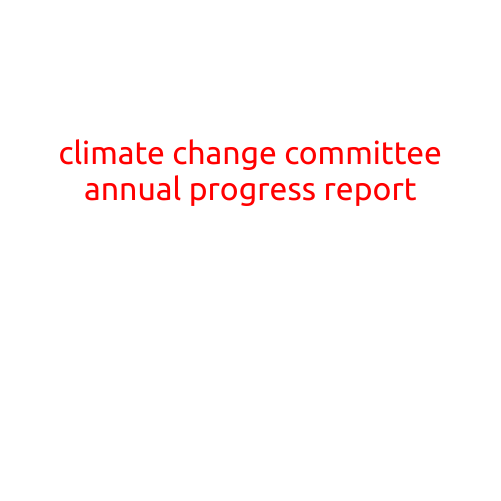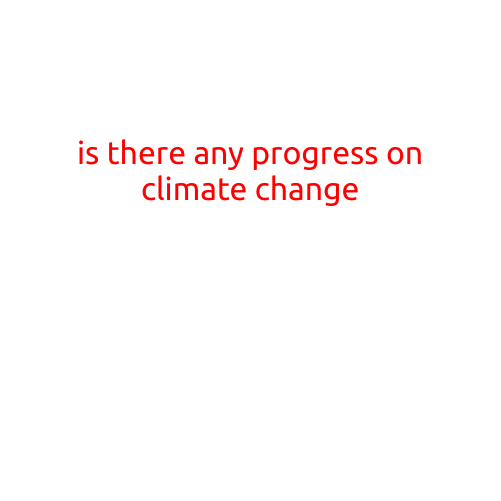
Is There Any Progress on Climate Change? An Update on Global Efforts to Combat Global Warming
As the world continues to grapple with the devastating impacts of climate change, a pressing question lingers: is there any progress being made to address this urgent global issue? The answer is complex, but a closer look at recent developments and international agreements suggests that while slow and uneven, progress is being made.
Rise of Renewable Energy
One of the most promising advancements is the rapid growth of renewable energy sources, particularly solar and wind power. In 2020, renewables accounted for nearly a quarter of global electricity generation, up from just 22% in 2015 (IRENA). This shift is driven by declining costs, improved technology, and government incentives. As a result, carbon emissions from the energy sector are slowing, and some countries are even experiencing net-zero emissions.
Global Agreements and Pledges
The Paris Agreement, signed by almost 200 countries in 2015, set a goal to limit global warming to well below 2°C above pre-industrial levels and pursue efforts to limit it to 1.5°C. While progress is slow, countries are setting their own Nationally Determined Contributions (NDCs) to reduce emissions. According to the UN, nearly 60 countries have already set targets to reduce their carbon footprint.
Carbon Pricing and Emissions Trading
Carbon pricing, a crucial mechanism to encourage low-carbon behaviors, is gaining traction. Over 50 countries have implemented carbon pricing schemes, with many more planning to do so. The European Union’s Emissions Trading System (ETS) has reduced emissions by 22% since 2005, while the UK’s Carbon Floor Price has encouraged a shift to cleaner energy.
Sustainable Transportation and Infrastructure
As concern for climate change grows, cities and countries are investing in sustainable transportation systems. Electrification of public transportation is on the rise, with many cities committing to all-electric fleets by 2030. Infrastructure projects are also being designed with climate resilience in mind, such as sea walls and flood-resistant buildings.
Emerging Technologies and Innovations
Breakthroughs in technology are critical to addressing climate change. Recent advances in:
- Carbon capture and utilization (CCU): converting CO2 into valuable products like fuels, chemicals, and building materials.
- Advanced nuclear power: next-generation reactors with improved efficiency and safety.
- Bioenergy with carbon capture and storage (BECCS): producing net-negative emissions through carbon-absorbing crops.
hold promise for significant emissions reductions.
Challenges and Shortcomings
Despite these positive developments, much work remains to be done. Roadblocks include:
- Inadequate international cooperation: some countries are lagging behind in their climate commitments or resisting ambitious targets.
- Slow transition of fossil fuels: continued reliance on fossil fuels hinders progress toward renewable energy dominance.
- Lack of transparency and accountability: inconsistent reporting and inadequate enforcement of climate commitments hinder global progress.
Conclusion
While progress on climate change is slow and uneven, it is undeniable that significant efforts are being made to address this global crisis. The rise of renewable energy, global agreements, carbon pricing, sustainable infrastructure, and emerging technologies all contribute to a more promising future. However, the challenges ahead are staggering, and continued cooperation, innovation, and perseverance will be essential to achieving the goals of the Paris Agreement and limiting global warming to 1.5°C.
